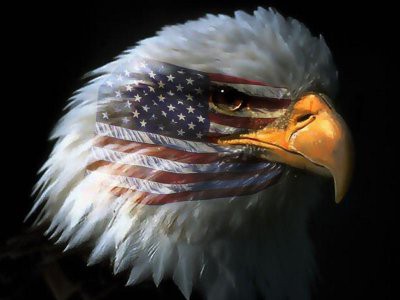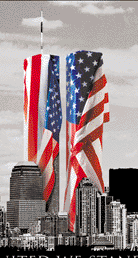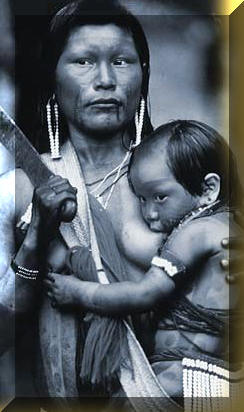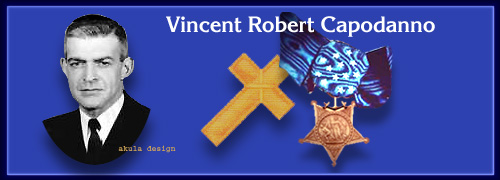|
|
 The
VigilanceVoice The
VigilanceVoice

VigilanceVoice.com
v
Tuesday- March 12, 2002—Ground
Zero Plus 182
Unsung Heroes Of Vigilance
by
Cliff McKenzie
Editor, New York City Combat Correspondent News 

GROUND ZERO, New York City,
Mar. 12--There are loud heroes and quiet heroes in every disaster,
every battle, every conflict of human nature. Then, there are
the unsung heroes--the ones who never stand out, some who can't be seen,
others who refuse to be recognized.
Today, Ground Zero Plus 182, is
the day I celebrate the "Unsung Heroes Of Vigilance" of September 11th,
2001.
One of those is a guy who
opened a door. I never saw his face. I only heard his Voice
yelling, "Come in. Come in quick."
After the North Tower imploded,
I stumbled through the fog of destruction toward the epicenter.
I wanted to be as close as possible to Ground Zero, to help if I could, to
witness and report one of history's ugly stains on the character of
humanity--and, to capture the heroism of warriors at work.
My focus was not the bravery of the
fireman and police who are trained to face death daily, but the average
man and woman, the sinew of humanity, who draw upon a deep well of courage
in times of crisis, who shed their fears and risk their lives for no other
reason than the innate drive to offer themselves up for others.
 The
Indians mastered the technique of bonding universal Vigilance with
children. When a child was born the women of the tribe all nursed
the child. The child fed from each of their breasts, suckling
the milk of maternity from the group. It was a way of bonding the
child to the whole of tribe, to make it part of the universe of humanity,
to accept it as one's own. When a crisis happened, every child
in the village was equal. The Parents of Vigilance sought no
child as more important than another to provide it security, safety, love,
wisdom. The
Indians mastered the technique of bonding universal Vigilance with
children. When a child was born the women of the tribe all nursed
the child. The child fed from each of their breasts, suckling
the milk of maternity from the group. It was a way of bonding the
child to the whole of tribe, to make it part of the universe of humanity,
to accept it as one's own. When a crisis happened, every child
in the village was equal. The Parents of Vigilance sought no
child as more important than another to provide it security, safety, love,
wisdom.
The guy who opened the door for me and the
others when the South Tower crumbled was one of those Unsung Heroes.
I found a small group of other people huddled up against a wall.
They were covered with ashes, ghosts of the disaster. We could
see the other tower burning, flames belching, black smoke gouging angry
fists in the sky as the heat battered at the structure.
Suddenly, it separated, as though some hand had reached down and ripped
the top of the structure, cleaving it from the firestorm.
"It's going!" There was no place to
run, no time to escape. "Cover your face and lean into the
wall," I said, having had a similar experience a few minutes earlier when
the first tower crumbled. We huddled close, noses against the
brick, covering our faces as the roar of the second building crashing
thundered. Just then a door next to us opened, and the
anonymous Voice beckoned us in.
We stumbled and grabbed each other's clothing,
like a bunch of children playing "choo-choo train," blinded by the soot.
Inside the building was a stairwell and staircase. We all climbed up
the staircase to the second floor landing. There were people
with rich clothing, expensive suits made for Wall Street, and workers, and
tourists. One man had a cell phone that worked and passed it around
so we could call loved ones.
I tried to call my daughter, a federal law
enforcement agent, to see where she was, to try and find her in the
madness. She didn't answer.
There was no time to thank whomever it was that
opened the door. Everyone was glad they were alive, stunned,
worried, waiting for whatever might come next. It seemed the
whole city was under attack. No one knew what was happening.
On the streets people from the tribe of humanity
stopped and helped others, regardless of wealth or poverty, color or
creed, religious or sexual preference. Witnessing the
compassion of tragedy's aftermath gave rise to the power of the human
spirit, it reminded me at the marrow of our being is a care for one
another, a love for the other that traverses all differences, that
provides a baseline for hope that one day humans might learn to live in a
peace between the souls of one another, as was expressed by the heroism of
one person helping another, comforting him or her, hugging, guiding,
soothing the pain of fear, the grief of loss.
After the first tower fell, I had made my way
toward the epicenter. The fallout was so thick I could barely see
when a young man appeared, a Secret Service Agent in civilian clothing,
and told me to take respite in a doorway with another person. He had
no idea what was happening, but wanted everyone to be safe.
 Inside
the doorway was a young girl, perhaps nineteen or twenty. She held a
disposable camera in one hand and was crying. Her name was
Lisa. "I've got to find my friends. We got separated. I've got
to find my friends." Inside
the doorway was a young girl, perhaps nineteen or twenty. She held a
disposable camera in one hand and was crying. Her name was
Lisa. "I've got to find my friends. We got separated. I've got
to find my friends."
We held each other for a moment. "It's
going to be okay," I said.
When the fallout lifted enough to see faint
images ahead, we
decided to make our way out of the alley. The Secret Service Agent asked if I
had anything he could use to cover his face. I dug through my pack and
found a washcloth I used to wipe my computer off and gave it to him.
He remained in the alley to direct people, and I guided Lisa to the
street. "Go north, uptown," I said. "Are you okay?"
She repeated she had to find her friends and
disappeared into the chalky fog.
I watched her figure disappear in
the ashen rain. Her friends rose above her own safety.
The power of the tribe was stronger than her instincts to protect herself.
Over the ensuing days story after story of
heroism appeared on the news. The focus was on the firemen and
police. It grew more and more intense as the funerals increased.
Over three-hundred firefighters died, and nearly thirty police.
 |
I
saluted them all because I knew the greatest glory of any warrior
was to die in battle and not while killing the enemy or trying
to, but the highest honor was dying in the attempt to save another.
The Marine Corps had instilled that in me--rooted within my
marrow the priority of saving the wounded and dragging out the
dead even at your own life's risk. In combat I had experienced
that responsibility, had dragged another wounded Marine from
a hail of bullets. My closest friend, Father Vince Capodanno,
had died in battle administering help to the wounded.
For his actions, he received the Congressional Medal of Honor,
but at the expense of his life. I knew well the price of human
bonding, where one's life is not more important than another's.
I knew it wasn't heroism that drove such actions, but rather
the force of the "tribe." I knew such acts represented
the fundamental baseline of ultimate human compassion and equality.
In trying to see the glory of
human struggle in the heart of horror, I began to focus on the
tens of thousands who escaped the tragedy. As the
heroism of the police and firefighters captured the headlines,
I thought of the hundreds and thousands of "unsung heroes"--the
civilians, the mothers and grandmothers, fathers and grandfathers,
uncles, aunts, nieces, nephews, brothers, sisters and cousins
of humanity-- inside the burning, ravaged building who had guided
others out, shouted words of encouragement, fearlessly stuffed
their own safety behind that of others.
We would never know all those
stories.
They included the guy nobody
liked at work who was the last one to leave the office, ushering
out everyone before he left. They were the quiet,
no-personality wallflower who was so anonymous few knew she
existed who shouted commands to other frightened souls, becoming
the captain of the sinking ship while her boss was fumbling
to get all the important papers from his desk.
There was the illegal alien busboy,
who spoke little English, a fly on the wall in a building of
power and might, who took a woman's hand and walked slowly with
her down the stairs, smiling up at her, radiating a glow, a
beacon that helped her escape her own fear.
I honor these Unsung Heroes today.
Some of them lived, many of them
died. Their stories will never be told, but for
those they helped, urged, encouraged to rise above their fears,
to bolster the courage to escape certain death, they live forever.
These Unsung Heroes are the Breast of Humanity.
We as a tribe, need to salute them with the same passion we
do our police or firefights or emergency workers.
If you haven't yet, stop and say a
prayer of thanks for the Unsung Heroes!
Prayer To The Unsung Heroes
of Nine Eleven
by
Cliff McKenzie
Oh,
faceless, nameless guides of Courage and Bravery, we salute
you.
We know not who you are, but we do know what
you are.
You are Seeds of Hope and Belief planted
in the holocaust of human horror.
You are sprigs of Pure Love, sprouting from
the soil of human compassion.
You put yourself at risk for us, for no other reason than being
you.
You held out hands of sacrifice for others,
offering light in the midst of storm.
Your soothing Voices grew to beacons of Faith
and Courage in a world of Terror.
We sing praises to your faceless, nameless,
selfless seeds that they may grow in us!

Go To Mar.
11--Shafts Of Light
©2001
- 2004, VigilanceVoice.com, All rights reserved - a ((HYYPE))
design

|
|



 The
Indians mastered the technique of bonding universal Vigilance with
children. When a child was born the women of the tribe all nursed
the child. The child fed from each of their breasts, suckling
the milk of maternity from the group. It was a way of bonding the
child to the whole of tribe, to make it part of the universe of humanity,
to accept it as one's own. When a crisis happened, every child
in the village was equal. The Parents of Vigilance sought no
child as more important than another to provide it security, safety, love,
wisdom.
The
Indians mastered the technique of bonding universal Vigilance with
children. When a child was born the women of the tribe all nursed
the child. The child fed from each of their breasts, suckling
the milk of maternity from the group. It was a way of bonding the
child to the whole of tribe, to make it part of the universe of humanity,
to accept it as one's own. When a crisis happened, every child
in the village was equal. The Parents of Vigilance sought no
child as more important than another to provide it security, safety, love,
wisdom. Inside
the doorway was a young girl, perhaps nineteen or twenty. She held a
disposable camera in one hand and was crying. Her name was
Lisa. "I've got to find my friends. We got separated. I've got
to find my friends."
Inside
the doorway was a young girl, perhaps nineteen or twenty. She held a
disposable camera in one hand and was crying. Her name was
Lisa. "I've got to find my friends. We got separated. I've got
to find my friends."

